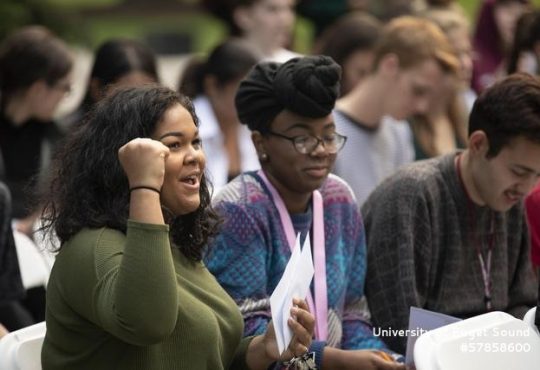To the staff of The Trail,
I am writing in response to the piece entitled “Second look on the true meaning of diversity.” I took issue with a number of points in that article, which I understood to be a severe misinterpretation of the needs of students of color, both at Puget Sound and in communities attempting to establish a presence within higher education.
The piece described the search for a president of color, or any other intentionally chosen background or identity, to be “restrictive and contradictory to the solidarity movement for gender and racial equality,” and that needs regarding diversity are met by clubs, the annual diversity summit, and “numerous other resources.” Furthermore, tuition is cited to be “largely responsible for the lack of diversity on campus.” I find these statements to be an extreme misrepresentation of the truth, and a corruption of the reality experienced by many students of color nationally.
A president of color would not simply serve as a “visual manifestation of diversity.” A president of color would serve to abolish the white precedent that has been established in the administration and to open the role to candidates that understand the experiences of students from marginalized identities. White people cannot be easily made to understand the true nature of the struggles and hardships that they can never endure, regardless of whether or not the individual is willing to stand in solidarity. To that end, a president of color (or of any other marginalized identity) would, presumably, know how to better reach prospective and current students and support them in ways that this white institution is currently unable to. Also stated by the author is the belief that “the selection process should rely solely on the candidate’s competency,” and when used in conjunction with the pushback against intentional hiring of a person of color, implies that white candidates are the most competent for the presidency.
Tuition is also a very small component of the “lack of diversity” experienced on campus. While the cost of attendance does provide an acute financial strain, students of color that are able to attend the university are subjected to a sharply polarized white-homogenous environment that is in many ways silencing and erasing for those that do not conform to Whiteness. Clubs on campus also have a varying impact for students based on specific background. Simply having an identity represented on campus for one night in a week does not ensure the comfort of all students of that identity, nor does it guarantee that the club will meet the needs of all students of that identity. In many areas, upper-middle class backgrounds are the shared identity across the student body, and the piece fails to address that trend.
Movements for social justice are not immune to the effects of institutional Whiteness, and throughout history, “equality” has been defined and interpreted to the detriment of the people most in need of support. The hiring of a president of a “diverse background” (in the inadequate language of the day) could be an immense step in providing overdue opportunity to make good on the University’s mission towards “diversity.”
Austin Colburn
acolburn@pugetsound.edu
253-861-7075



